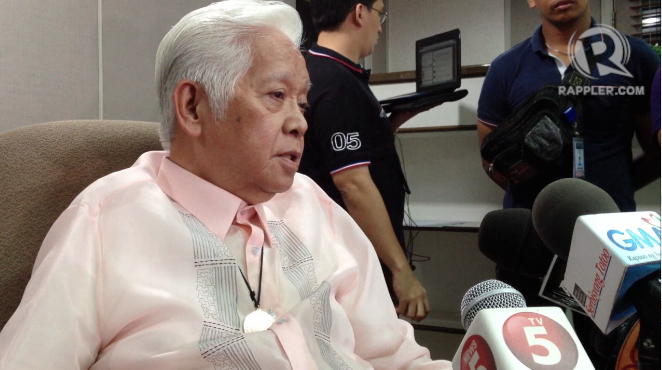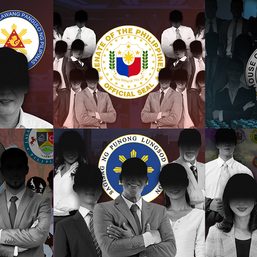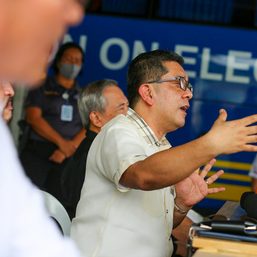SUMMARY
This is AI generated summarization, which may have errors. For context, always refer to the full article.
MANILA, Philippines – In their heated debates on the party-list purge, Commission on Elections (Comelec) commissioners often find themselves grappling for basics. Who is “marginalized,” in the first place?
Comelec Chair Sixto Brillantes Jr on Thursday, November 8, admitted the poll body’s difficulty in defining marginalized organizations as it screens party-list groups for the 2013 elections. In an interview after a Senate hearing on electoral reforms, Brillantes attributed this to a supposedly insufficient definition under Republic Act 7941 or the Party-List System Act.

Brillantes thus urged a “total revision” of the Party-List System Act. “Magulo eh,” the poll body chief told reporters. (It’s confusing.)
He also noted that Comelec commissioners “don’t really have enough guidelines under the existing law.” They end up being subjective, he said. “We debate among ourselves: Ano ba’ng marginalized sa ‘yo? Ano ba’ng marginalized sa akin?” (What’s marginalized for you? What’s marginalized for me?)
RA 7941 does not define marginalized and underrepresented sectors, a factor that the Comelec uses to disqualify or disapprove the applications of party-list groups. The law, however, says those who can run for party list include the following sectors: “labor, peasant, fisherfolk, urban poor, indigenous cultural communities, elderly, handicapped, women, youth, veterans, overseas workers, and professionals.”
A Supreme Court ruling, Ang Bagong Bayani-OFW Party vs Commission on Elections, says only marginalized and underrepresented groups may run for party list. But neither does this ruling define the marginalized and underrepresented.
Why disqualify?
Based on the SC’s criteria, the Comelec has disqualified several groups from joining the 2013 party-list race. The most prominent group it barred this week is the Black and White Political Party, a pro-Aquino group that does not represent the marginalized, as far as the Comelec is concerned. (Watch more in the video below.)
The poll body has also disqualified several groups allied with former President Gloria Macapagal-Arroyo, the most prominent of which is the group of her son, Juan Miguel “Mikey” Arroyo. The Comelec has disqualified Mikey’s group, Ang Galing Pinoy, because it has supposedly failed to push for the rights of security guards while it is incumbent in Congress.
The chair of the Senate’s electoral reforms committee, however, questioned the Comelec’s prerogative to disqualify previously accredited groups. “Those you have already accredited, on what provision of law or legal doctrine do you base your power to revisit their accreditation?” said committee chair Senator Aquilino “Koko” Pimentel III.
Brillantes, however, emphasized the Comelec’s power to review the qualifications of party-list groups. He said the law requires these groups, anyway, to seek accreditation every time they participate in elections.
“We feel that there are several party-lists which were previously accredited but do not have the continuing qualifications to participate in future elections,” Brillantes explained.
The group Kontra Daya, for its part, is anticipating the “biggest test” in Comelec’s party-list purge. This is the possible disqualification of the pro-Aquino group Akbayan, which other leftist groups want the poll body to do. – Rappler.com
More on #PHVote, Rappler’s coverage of the 2013 elections:
- Disqualifying Akbayan is Comelec’s ‘biggest test’
- Should relatives be allowed to run in different areas?
- Brillantes: Election lawyers prolong PH polls
- Makabayan endorses 5 senatorial bets
- Ballots ‘100% tested’ by 2013?
Add a comment
How does this make you feel?




![[PODCAST] Beyond the Stories: Ang milyon-milyong kontrata ng F2 Logistics mula sa Comelec](https://www.rappler.com/tachyon/2021/11/newsbreak-beyond-the-stories-square-with-topic-comelec.jpg?resize=257%2C257&crop_strategy=attention)



There are no comments yet. Add your comment to start the conversation.